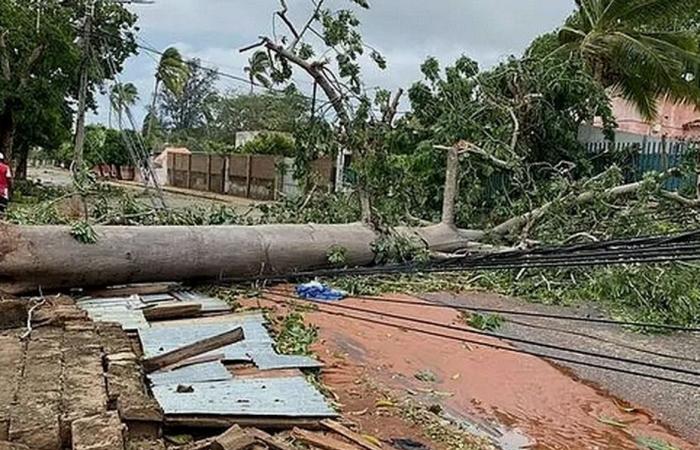The Red Cross and Red Crescent are organizing to help countries affected by intense tropical cyclone Chido. The meteor devastated Mayotte and Agaléga, but it also hit Mozambique hard, and caused considerable damage to the Comoros and Malawi.
The Red Crescent and the Red Cross are organizing to help in Mozambique, but also in Malawi and the Comoros where the violent winds and heavy rains associated with intense tropical cyclone Chido have caused significant damage.
Naemi Heita, head of the IFRC country group delegation, explains on reliefweb.int (UN news site): “While assessments are still ongoing to determine the extent of the damage, the emerging needs of those affected include shelter, food, clean water and health services, among others. We fear that these figures are increasing as emergency teams gain access to areas cut off by flooding and destruction.”
The provisional reports sent by the teams of the two organizations show: “622,000 people impacted in Mozambique, with more than 130,000 shelters damaged or destroyed, while in the Comoros, the passage of Cyclone Chido affected more than 64,000 people, with homes, schools and agricultural land seriously damaged. In Malawi, more than 45,000 people are affected.”
The International Federation of the Red Cross and Red Crescent (IFRC) has just launched an emergency appeal to respond to the needs of the three countries affected by Chido.
The teams responsible for care, such as those for the distribution of drinking water, sanitation or the construction of emergency shelters, do not have sufficient resources.
In addition to immediate needs, this call aims to provide teams with essential resources for the 2024/2025 hurricane season which is beginning.






